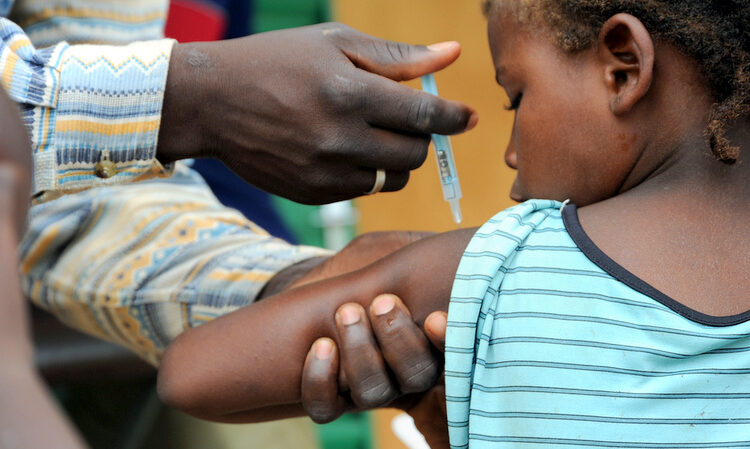The United Nations Children’s Fund (UNICEF), has said that Nigeria bears the highest burden of unvaccinated children globally, with an estimated 2.1 million “zero-dose” children, those who have not received a single routine vaccine.
UNICEF Health Officer, Bashir Elegbede, stated this during a media dialogue organised by UNICEF in Damaturu, Yobe State, to commemorate the 2025 World Immunisation Week, aimed to raise awareness about immunisation challenges and efforts, particularly in the conflict-affected northeastern region.
He described vaccines as “lifesavers” and stressed their critical role in ensuring children’s survival and healthy development. “Vaccines provide the necessary foundation for children to thrive. Yet, Globally, sadly, Nigeria has the highest burden of zero dose children. A number estimated to be 2.1 million as at 2023 (WUENIC 2023).
“With Borno and Yobe States having a disproportionate number of these children. UNICEF, alongside stakeholders in the health sector have continued to work with government to reduce the number of zero dose children through improvement routine immunisation coverages and approaches that strengthen the health systems across Nigeria,” he said.
A “zero-dose” child is one who has not received any routine vaccines by age one, particularly the first dose of the DPT or PENTA vaccine. These children are often found in conflict zones, hard-to-reach rural areas, urban slums, and communities struggling with poor healthcare infrastructure.
Elegbede noted that children who miss these vaccinations face a significantly higher risk of contracting and dying from vaccine-preventable diseases such as polio, measles, meningitis, yellow fever, and hepatitis.
He said the northeastern states of Yobe and Borno are among the worst affected. Out of the 200 local government areas (LGAs) identified as high-priority across the country, ten are in the northeast, two in Yobe (Geidam and Gulani) and eight in Borno.
UNICEF estimates that over 400,000 children above one year in these LGAs have never received a single vaccine.
To combat this, UNICEF said it has supported the Yobe State Government in vaccinating around 20,000 zero-dose children in 2024. Its network of Volunteer Community Mobilisers (VCMs) has also reduced non-compliance to routine immunisation to below 1 per cent in target communities.
In Borno State, UNICEF reached 145,000 zero-dose children through intensified campaigns. An additional 165,000 children across the northeast were targeted in the “Big Catch-Up” immunisation rounds in March and April 2025, with 95 per cent of them already vaccinated.
UNICEF urged all Nigerians, health workers, parents, policymakers, and community leaders to intensify efforts to close the immunisation gap. “A vaccine for one among us is for our collective protection,” Elegbede emphasised.
He called on the government to strengthen healthcare systems and on citizens to dispel misinformation, promote vaccine awareness, and ensure no child is left behind.











